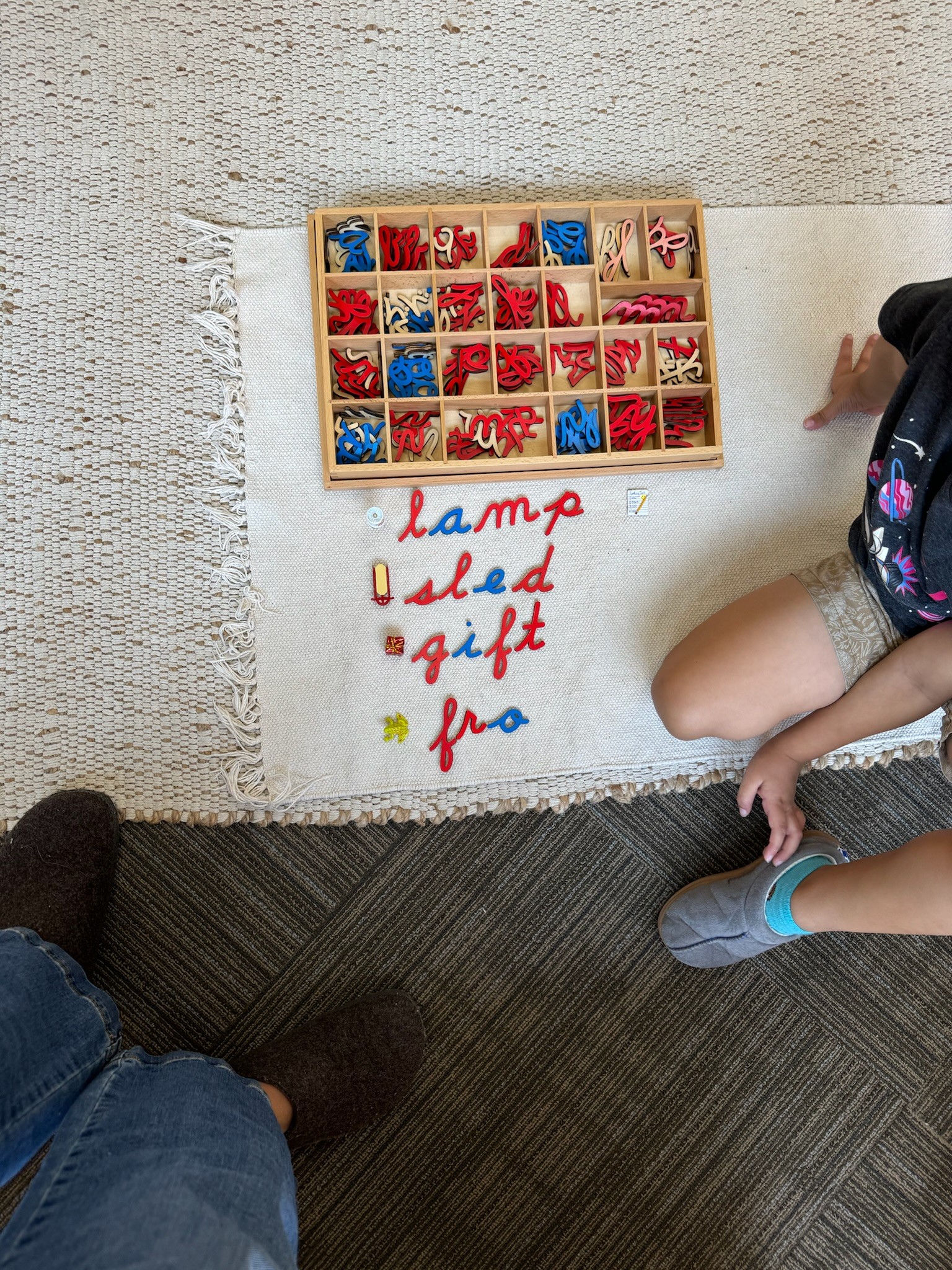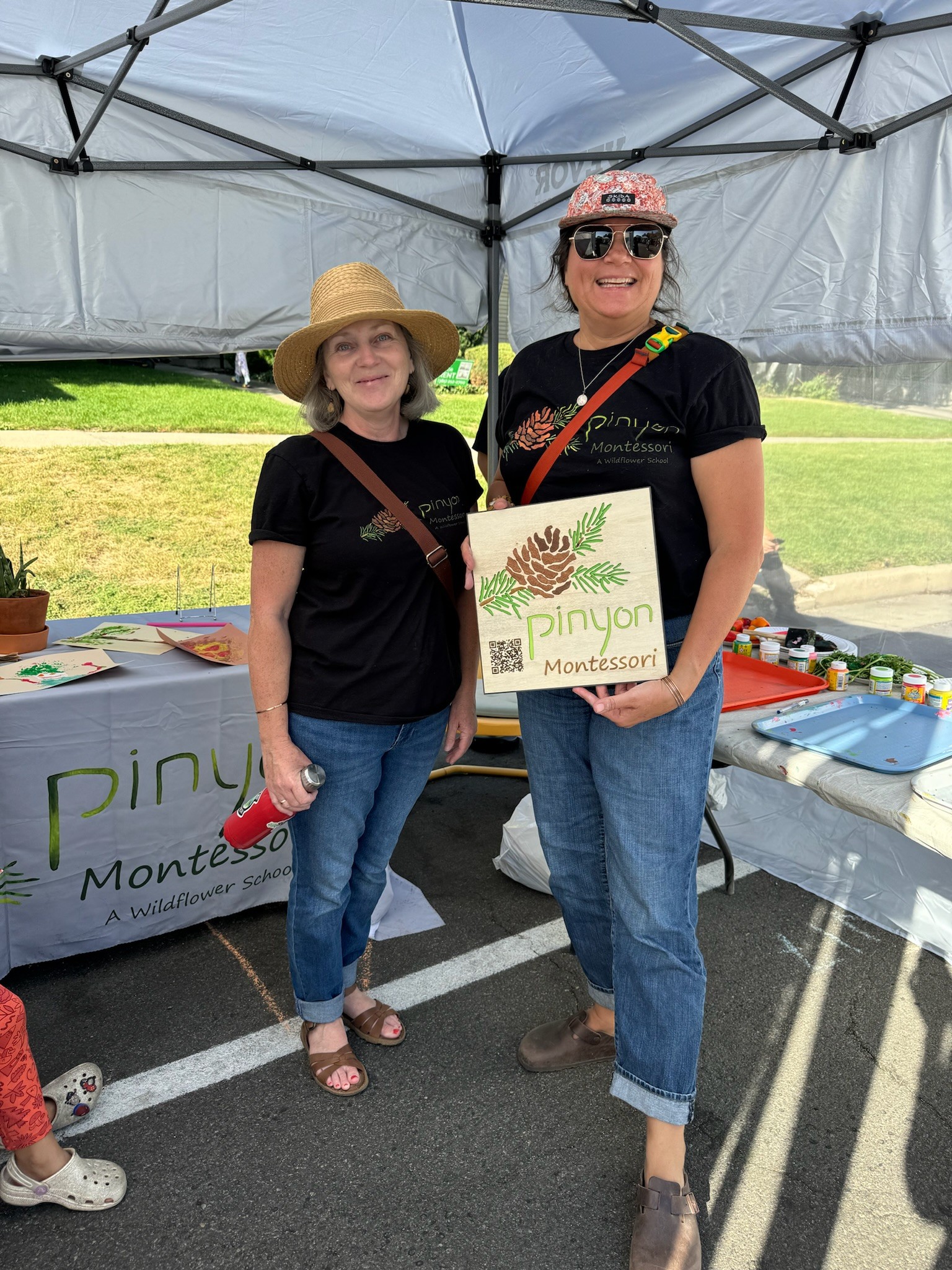Alright – so today we’ve got the honor of introducing you to Chip Reichanadter. We think you’ll enjoy our conversation, we’ve shared it below.
Chip, looking forward to hearing all of your stories today. Let’s kick things off with talking about how you serve the underserved, because in our view this is one of the most important things the small business community does for society – by serving those who the giant corporations ignore, small business helps create a more inclusive and just world for all of us.
Pinyon Montessori was founded to address a significant gap in educational access for underserved families in the Salt Lake City area. Our school specifically serves children ages 3-12, providing authentic Montessori education that is often inaccessible to many families due to the high cost of private schooling. We saw a need for an alternative education model that offered not only affordable tuition but also a space for neurodiverse students and children with unique medical needs.
One story that illustrates the impact of our work comes from a family with a neurodiverse child who struggled to find a school that understood and supported their needs. Traditional classrooms weren’t equipped to offer the individualized learning or hands-on experiences that are key to their development. At Pinyon Montessori, we created a Student Support Plan tailored to this child’s strengths, challenges, and interests, involving their family, teachers, and specialists. The support and flexibility we provided allowed the student to thrive academically and socially in a way that traditional schools simply hadn’t been able to offer.
This experience speaks to why our work matters. Many parents feel they have to choose between affordable childcare and an education model that genuinely supports their child’s unique needs. By offering a tiered tuition model and a holistic, experiential Montessori curriculum, we ensure that families from diverse socioeconomic backgrounds can access high-quality education without the prohibitive costs typically associated with private schooling.
Our goal is not only to serve underserved communities but to fundamentally change the landscape of education in our region by advocating for choice, equity, and access for all children. Through our work, we help children develop into compassionate, independent thinkers who can contribute to their communities in meaningful ways.

Chip, before we move on to more of these sorts of questions, can you take some time to bring our readers up to speed on you and what you do?
I’m Chip, and along with my partners Margaret and Brandi, I co-founded Pinyon Montessori in 2023. Our school is designed to offer a unique, equitable, and liberatory Montessori education for children ages 3-12. My personal journey into Montessori education stems from my own experiences as a student. In traditional school settings, I often struggled despite knowing that I had the intelligence and capacity to succeed. The rigid structure didn’t align with my learning style. This drove me to explore alternative education models, and I found that Montessori not only acknowledges but embraces the diverse ways in which children learn.
Montessori education creates a supportive learning environment that meets each child where they are, allowing for individualized learning that fosters academic, social, and emotional growth. At Pinyon Montessori, we are committed to upholding these principles while also ensuring accessibility for all families. To achieve this, we offer a tiered tuition model, making it possible for families of various financial backgrounds to afford a high-quality Montessori education for their children without compromising on the integrity of the Montessori method.
We’re also proud to be a part of the Wildflower Network, a collection of schools that share this philosophy and work to bring it to communities worldwide. In fact, we’re the first Wildflower School in Utah, and we hope to inspire the growth of many more across the state.

What’s a lesson you had to unlearn and what’s the backstory?
One of the biggest lessons we had to unlearn was the traditional approach to top-down management. In many organizations, especially schools, there’s often a clear hierarchy with leadership at the top and teachers primarily focused on the classroom. As a Wildflower School, we’ve reimagined that model through self-management, where we are all teacher-leaders—meaning exactly what it sounds like. As teachers, we also take on the leadership and administrative roles that typically fall to a management team in other institutions.
This shift in mindset was crucial for us. It allows us to share equitable responsibility across every aspect of the school, from classroom teaching to administrative tasks like HR, payroll, and even facility management. It eliminates the layers of institutional bureaucracy that can slow down decision-making and make schools feel disconnected from the people they serve. By allowing the teacher-leaders to handle all aspects of the school, we gain flexibility, responsiveness, and the ability to adapt quickly to the needs of our students and their families.
Another key benefit of self-management is that it fosters deep, meaningful relationships between students, families, and the school. Each person’s ideas and contributions are truly valued, and decision-making is led by the person responsible for that area of the school. This model empowers us to be more innovative and intentional, and it ensures that the people who know the students best—the teachers—are the ones making decisions that affect their education and well-being.
In embracing this approach, we’ve created a school environment that is more collaborative, transparent, and deeply connected to the needs of our community. It’s a lesson that has transformed how we operate and one we believe makes our school stronger.

Are there any books, videos or other content that you feel have meaningfully impacted your thinking?
One book that stands out is “The Places That Scare You” by Pema Chödrön. This book emphasizes the importance of embracing discomfort and vulnerability as part of our personal and professional growth. It has taught me to approach challenges with a sense of openness and curiosity rather than fear.
Another impactful read is “Hunt, Gather, Parent” by Michaeleen Doucleff. This book explores parenting practices from various cultures and offers insights into fostering independence and resilience in children. It has inspired me to think critically about how we approach education at Pinyon Montessori.
“The Culture Map: Breaking Through the Invisible Boundaries of Global Business” by Erin Meyer has also been instrumental in shaping our understanding of collaboration and communication in our small yet. mighty team.
Contact Info:
- Website: https://www.pinyonmontessori.org/
- Instagram: https://www.instagram.com/pinyonmontessori/
- Facebook: https://www.facebook.com/profile.php?id=100091584600353
- Linkedin: https://www.linkedin.com/in/pinyon-montessori-4911a92ba/
- Yelp: https://www.yelp.com/biz/pinyon-montessori-salt-lake-city?osq=pinyon+montessori

Image Credits
Kari Sikorski


